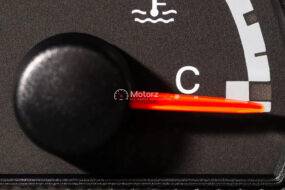Car Loans vs. Leasing Pros and Cons for Smart Financing When it comes to acquiring a new vehicle, the age-old debate between car loans and leasing continues to divide consumers. Both options have their distinct advantages and disadvantages, making the decision a crucial one for anyone looking to make a smart financial choice. In this article, we will delve into the pros and cons of car loans and leasing, helping you make an informed decision that aligns with your unique circumstances and financial goals.
Car Loans: The Pros
Perhaps the most significant advantage of taking out a Car Loans vs. Leasing is the eventual ownership of the vehicle. Once you’ve paid off the loan, the car is entirely yours. This means no more monthly payments, and you can use the car for as long as it remains operational.As you make payments on your car loan, you build equity in the vehicle. This equity can be tapped into by selling the car or using it as a trade-in for your next vehicle purchase. Car loans typically come with fewer restrictions on mileage and customization, allowing you to drive as much as you want and personalize your vehicle to your liking.
No Excess Wear and Tear Fees
Unlike leasing, car loan holders don’t need to worry about paying extra fees for excessive wear and tear on the vehicle. When your loan term is up, there are no lease-end costs or penalties. You have full control over the vehicle’s future.
Car Loans: The Cons
Higher Monthly Payments Car Loans vs.Leasing usually require higher monthly payments compared to leasing. This can strain your monthly budget, especially if you opt for a shorter loan term. New cars tend to depreciate rapidly, and with a car loan, you’re on the hook for this depreciation. If you decide to sell the car before paying off the loan, you may owe more than the car’s current value. As the car ages, maintenance costs can increase, which can be a significant financial burden. Car loans typically come with longer-term commitments, often stretching for 5 years or more. If you desire more flexibility in changing vehicles frequently, a car loan may not be the best choice.
Leasing: The Pros
Lower Monthly Payments Lease payments are generally lower than loan payments, allowing you to drive a more expensive vehicle for the same monthly budget. Most leased vehicles are under warranty during the lease term, reducing the out-of-pocket expenses for repairs. No Depreciation Worries You don’t have to worry about the vehicle’s depreciation, as you’re essentially renting it for a fixed term. Leasing allows you to drive the latest models with cutting-edge technology and features every few years.
Leasing: The Cons
Car Loans vs. Leasing At the end of the lease term, you don’t own the vehicle, and you must return it to the dealer. This means you have no equity in the car. Most leases come with mileage limits, and exceeding these limits can result in costly per-mile charges. You are typically required to maintain the vehicle according to the manufacturer’s recommendations, which can be costly. When you return the leased vehicle, you may incur fees for excessive wear and tear or mileage overages.
Conclusion
The choice between Car Loans vs. Leasing ultimately depends on your personal financial situation, driving habits, and preferences. Car loans offer the advantage of eventual ownership, equity buildup, and more freedom with the vehicle, but they come with higher monthly payments and potential depreciation concerns. On the other hand, leasing provides lower monthly payments, the ability to drive the latest models, and no worries about depreciation. However, it doesn’t result in vehicle ownership, and you may face mileage restrictions and maintenance requirements. Before making a decision, carefully evaluate your budget, long-term goals, and how you intend to use the vehicle. Whichever option you choose, it’s essential to read and understand the terms of the loan or lease agreement thoroughly. By doing so, you can make a smart financing decision that aligns with your needs and sets you on a path to financial success.





